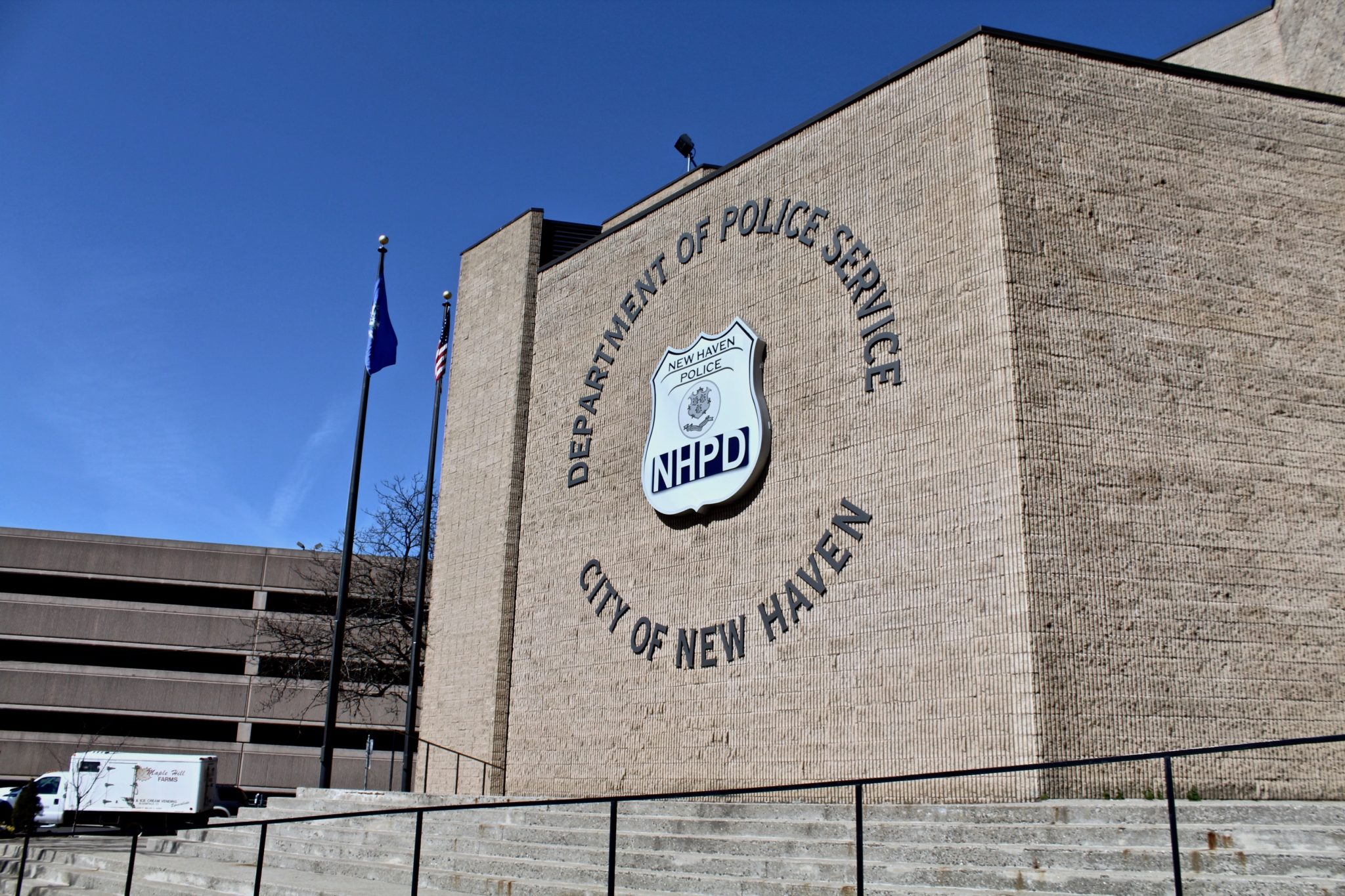
Adrian Kuleza, Staff Photographer
Despite modified services and stringent sanitation measures, first responders in New Haven are seeing the consequences of COVID-19 exposure and preparing for future challenges.
In a press conference on Monday, New Haven mayor Justin Elicker confirmed that one police officer and one firefighter have tested positive for COVID-19. Twelve other firefighters have been tested for the virus –– four have tested negative, and eight are still awaiting results. On Monday, New Haven Police Chief Otoniel Reyes and New Haven Fire Chief John Alston Jr. explained contingency plans for the departments, including the possibility of calling on public safety services from nearby towns and self-isolation housing options for first responders.
“We have a robust plan in place,” Reyes said. “We have taken precautions to identify anyone who may have come in contact with the officer, and we have contacted those individuals personally. That’s part of our ongoing efforts to make sure there is communication and collaboration and coordination with the health department.”
Reyes said that individuals notified of exposure to the COVID-19 positive officer were self-quarantining at home. He also highlighted that early identification and self-isolation of exposed persons was the cornerstone of the department’s plan to avoid spreading the virus while carrying out their duties.
According to Alston, all firefighters awaiting test results are currently not on duty and planned to stay in isolation for 14 days. Firefighters continuing to work in the field are readjusting their schedules by picking up additional shifts and changing their rotations.
As the city has increased social distancing measures in an attempt to slow COVID-19 infection rates, the NHPD has followed suit with departments across the state and taken steps to limit in-person contact with officers. Earlier this month, the department announced the closure of their department lobby and the suspension of services such as fingerprinting, purchase of police reports and walk-in internal affairs complaints. The city continues to respond to emergency calls, such as “serious crimes,” animal complaints that threaten human life, domestic violence incidents and traffic accidents.
“We’re still trying to do the best that we can to provide the necessary services, the critical services, to our citizens,” Reyes said earlier this month. “But obviously under the circumstances, our officers are responding at limited fashion only to the more critical incidents.”
Still, Reyes emphasized that the department would continue to make arrests and pursue individuals who attempted to take advantage of the modified police presence in light of the pandemic. On Monday, Reyes said that the department was booking three or four people into their detention facility daily — down from an average of 12 or 13 per day prior to the COVID-19 crisis. This is also part of increased efforts to avoid incarcerating more individuals during the pandemic.
During Elicker’s press briefing, citizens raised concerns about the possibility of the immobilization of large swathes of public safety officers due to COVID-19 exposure. The city’s plan to address these concerns is two-fold: partnering with neighbouring cities in an emergency, and sourcing housing for officers to effectively self-isolate and avoid spreading infection throughout their units.
According to Reyes, the NHPD would only enact agreements with area partners if they reached a critical point where a significant amount of the force was rendered unable to serve.
Alston revealed that the NHFD had performed a simulation last month of a scenario where the department lost 25 percent of their workforce. He said the department had always relied on mutual aid and it would be an “ongoing conversation” with partners to supplement each other’s functions.
The city is also ironing out the terms of a partnership with the University of New Haven to clear beds for two categories of public safety officers: those who are waiting for COVID-19 test results and choose to self-isolate away from vulnerable family members, or healthy officers who wish to remain separate from a family member with COVID-19 exposure. Depending on demand, the dorms may house up to 150 individuals –– for each one, the city would endeavor to place them in individual rooms with their own bathroom. According to Reyes, the city is planning to implement a sanitation regime that would disinfect the room daily.
The agreement with UNH comes in the wake of rising tensions between the city and Yale. According to Elicker, the University originally declined his request to use Yale dorms to house first responders, citing feasibility issues. However, one day after Elicker publicly slammed the University for its lack of support, University President Peter Salovey changed course and committed to providing 300 beds for first responders and hospital personnel, which Elicker has not yet committed to using.
The University will provide those beds by clearing space in Benjamin Franklin, Pauli Murray, Morse and Ezra Stiles –– chosen for their respective proximity to Yale Health and the temporary medical facility at Payne Whitney Gym. Students remaining on campus currently living in the four colleges will be relocated to different colleges.
The New Haven Police Department is located at 1 Union Ave.
Meera Shoaib | meera.shoaib@yale.edu
Interested in getting more news about New Haven? Join our newsletter!







